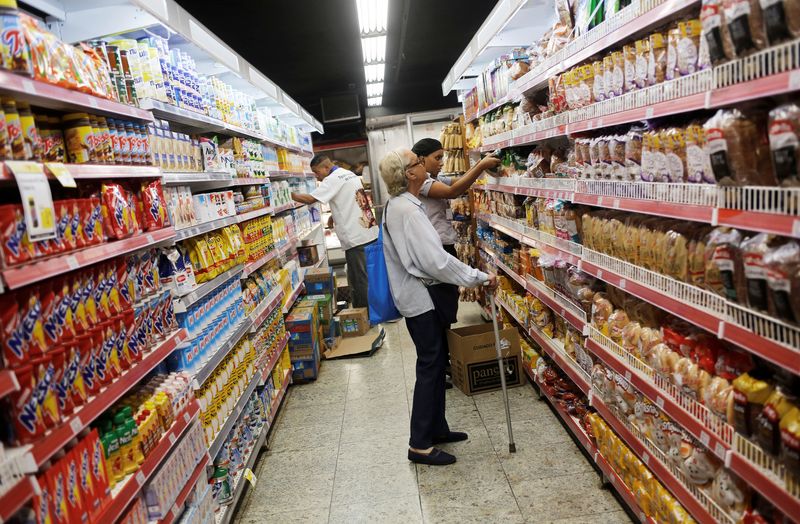By Gabriel Burin
(Reuters) - Brazil's consumer prices barely rose on the month in July, a Reuters poll of economists estimated, with an expected drop in food costs countered by a probable rise in gasoline bills after the reinstatement of a federal tax on fuels.
The IPCA inflation index, due Friday Aug. 11, is forecast to have edged up 0.07% last month, according to the median estimate of 21 economists polled Aug. 2-7, following a -0.08% reading in June. That would lift the annual rate to 3.93% from 3.16%.
However, that expected pick-up is related to base effects rather than any reactivation of deeper inflationary pressures, in line with the Brazilian central bank's plan to carry on a string of moderate rate cuts after an initial move last week.
"We see another gradual improvement in underlying inflation in a slow disinflation process, with all of the core gauges maintaining this good momentum," Santander (BME:SAN) analysts wrote in a report, adding this is likely to be driven by goods prices.
"Moreover, services and core services indexes also improved... although they will continue to be considerably above the inflation target," the analysts noted.
Brazil is enjoying benign food inflation trends resulting from a record-breaking crop that may be repeated next season, provided the country's vast production of grains and oilseeds is spared from the impact of the El Nino climatic pattern.
While Latin America's No.1 economy is less exposed geographically to the effects of the weather phenomenon originating in the Pacific Ocean, it could suffer anyway if global commodity markets are disrupted.
But such a scenario is absent in medium-term inflation forecasts that continue to diminish gradually in the central bank's weekly surveys, getting closer to the official target of 3.25% with a margin of 1.5 percentage points.
Apart from helping to open a window for much awaited interest rate cuts, stable food prices facilitate President Luiz Inacio Lula da Silva's government initiative to raise fuel taxes again in a bid to strengthen Brazil's public accounts.

This remains the most challenging front, as any excessive budget slippage could begin to show up in the form of higher inflation expectations through potentially lower public debt prices and domestic currency weakness.
While the administration continues to slowly increase social spending to live up to Lula's campaign promises, some disappointments on revenue-boosting measures have made it harder for Brazil's government to balance its budget.
(Reporting and polling by Gabriel Burin; Editing by Ross Finley and Jan Harvey)